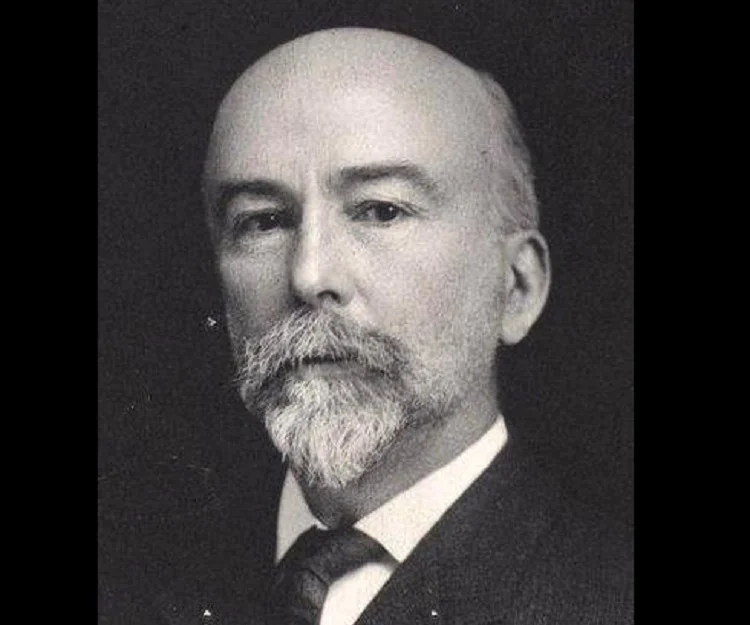Exploring the Idealist Approach in Geography

In 1981, Leonard Guelke advocated the idealist approach as a counter to the positivist arguments dominating historical geography. Guelke emphasizes the need for a philosophical shift rather than a change in techniques, urging scholars to embrace an approach widely accepted by historians.
Reine or Pure Geography

The French geographer Philippe Buache and the German philosopher and writer of geography Anton Friedrich Busching, attempted to describe the areal similarities and differences in an orderly manner, and provided rational explanation.
Oscar Peschel: Pioneering a Paradigm Shift in German Geography

Oscar Peschel emerges as a transformative figure who dared to reshape the contemporary landscape, defying the established norms of geographic heritage laid down by luminaries such as Humboldt and Ritter.
Ptolemy’s Geographical Insights

Claudius Ptolemy, commonly known as Ptolemy (90-168 CE), was a renowned figure in ancient Greek and Roman geography.
Exploring German Geographic Thoughts

German geographers have articulated and developed key geographic theories and concepts, including Scientific Geography, Systematic Geography, Regional Geography, Determinism, Environmental Science, Landscape, Geopolitics, and the Principle of Situation.
Contribution of Roman Geographers

Strabo (63 BC-24 AD), a Greek scholar and traveler writing at the height of the Roman Empire, was strongly influenced by the historical topographical tradition of Homer, Hecateaus, and possibly of Aristotle. It is often said that the historical tradition, introduced by the Greek scholars in geographical scholarship was finally summarized by Strabo.
Understanding Dichotomy between General Geography and Regional Geography

Dichotomy between General Geography and Regional Geography This dichotomy between ‘general’ and ‘regional’ was first raised by Bernhard Varen (also known as Varenius) in the 17th century. In his groundbreaking work, Geographia Generalis, published in 1650, Varenius recognized general geography as a sub-discipline focused on formulating general laws and principles. Later, this sub-discipline came to […]
The Schaefer-Hartshorne Debate

Discover the Schaefer-Hartshorne debate in geography, from regional exceptionalism to generalization and theory.
Understanding Mental Maps: Exploring the Geographies of the Mind

Discover how understanding mental maps can provide insights into decision-making processes and shape spatial behavior. D
Geography and Social Justice: Exploring the Intersections

Discover the intersection of geography and social justice, exploring issues like environmental justice, spatial segregation, and access to resources.
Carl Sauer’s Contribution to Geography

Carl Sauer, a prominent figure in American geography, introduced a groundbreaking perspective through his essay “The Morphology of Landscape” in 1925. Sauer criticized the traditional concept of man-land relationships and proposed a new model based on the works of Humboldt and Heitner. This blog post explores Sauer’s contributions and his concept of geography as chorology.
The Contributions of William Morris Davis to Geography

Davis introduced the concept of the geographical cycle, also known as the cycle of erosion, as a generalized model for the sequence of landforms resulting from the erosional processes of running water on elevated areas of the Earth’s surface. He proposed that if there were no changes in surface elevation, sea level, or climate, a predictable sequence of landforms would occur.
The Contribution of Halford J. Mackinder (1861-1947) to the Field of Geography

Mackinder’s most famous contribution to geography was his theory of the “Heartland” or “The Geographical Pivot of History,” the title under which it was presented in 1904. This theory proposed that the control of the Eurasian landmass, specifically the vast central region known as the Heartland, would determine global power dynamics.
Positivism

Positivism as a philosophy was originally proposed by Auguste Comte in the 1820s and 1830s, drawing on the earlier ideas of Saint Simon. Its main goal was to distinguish science from metaphysics and religion. Positivism emerged as a response to the negative philosophy prevalent before the French Revolution. This negative philosophy was more concerned with emotional and speculative questions, and it aimed to change society through utopian alternatives to existing situations.
Otto Schluter

Otto Schluter (1872-1952) from Germany was a geographer who had different ideas about what geography should focus on. While many geographers saw geography as the study of different areas of the Earth, Schluter and others felt that geography should have a clear subject of study and not just be defined by its method.
